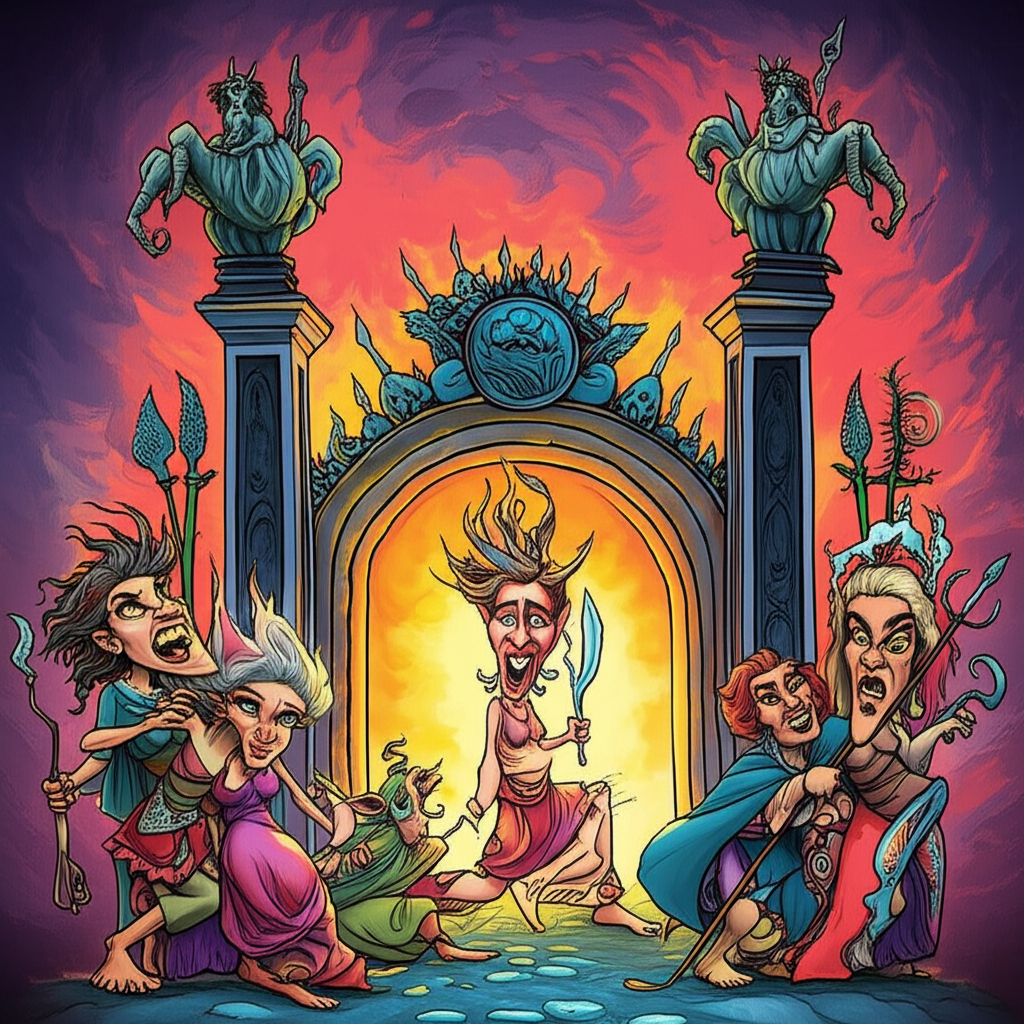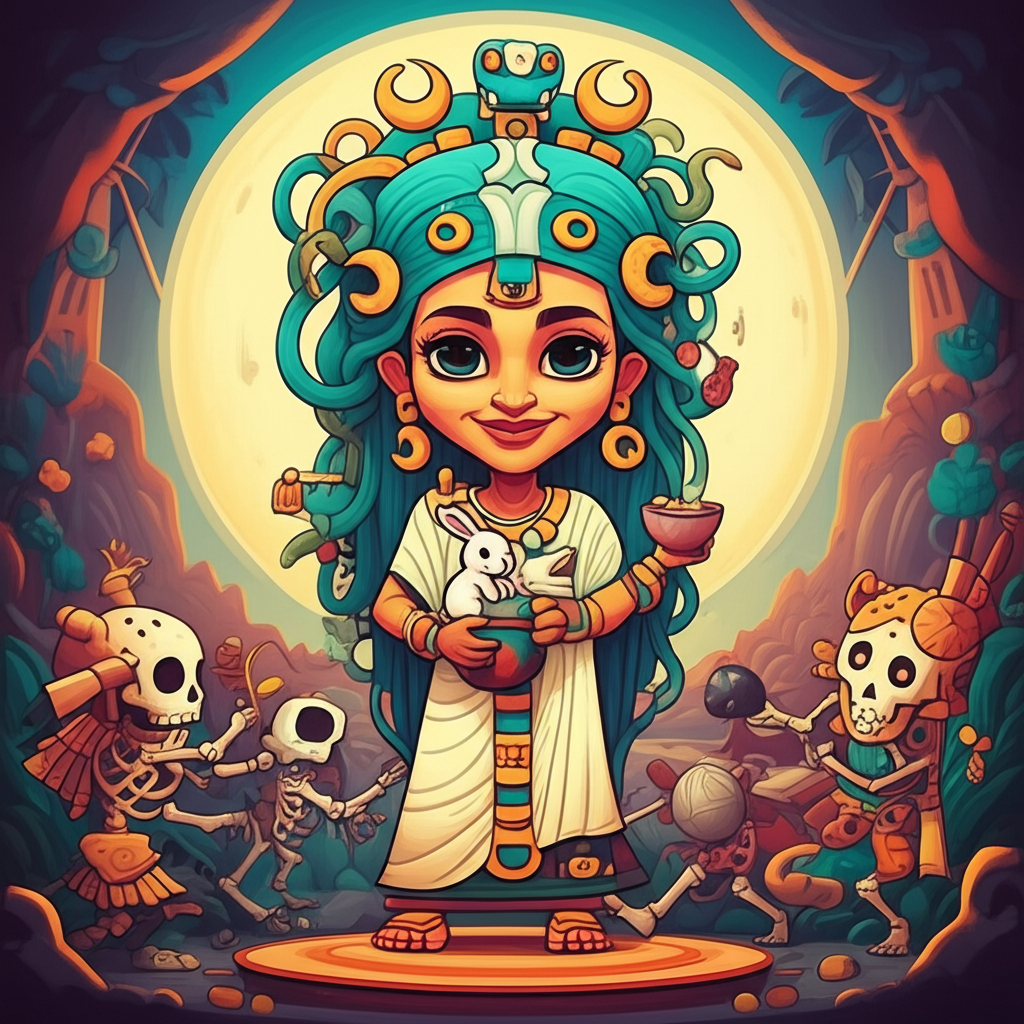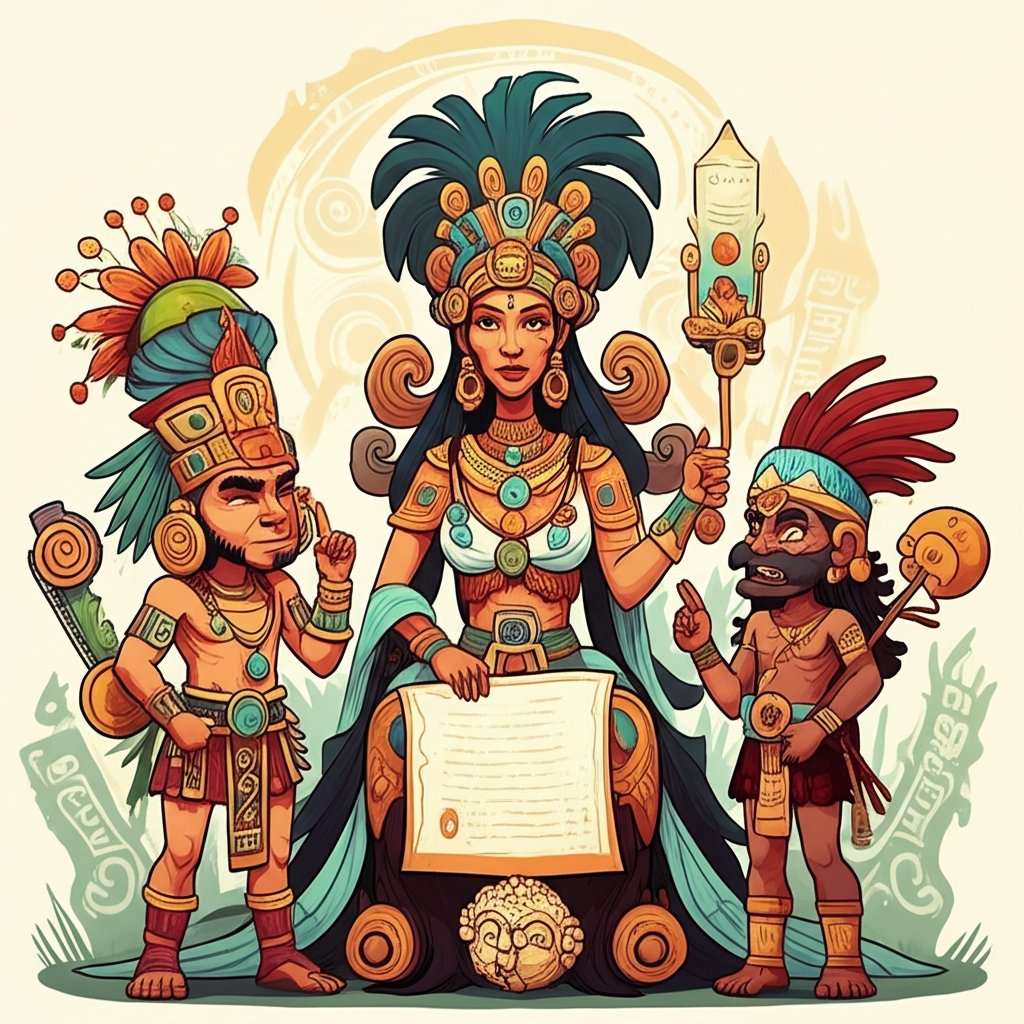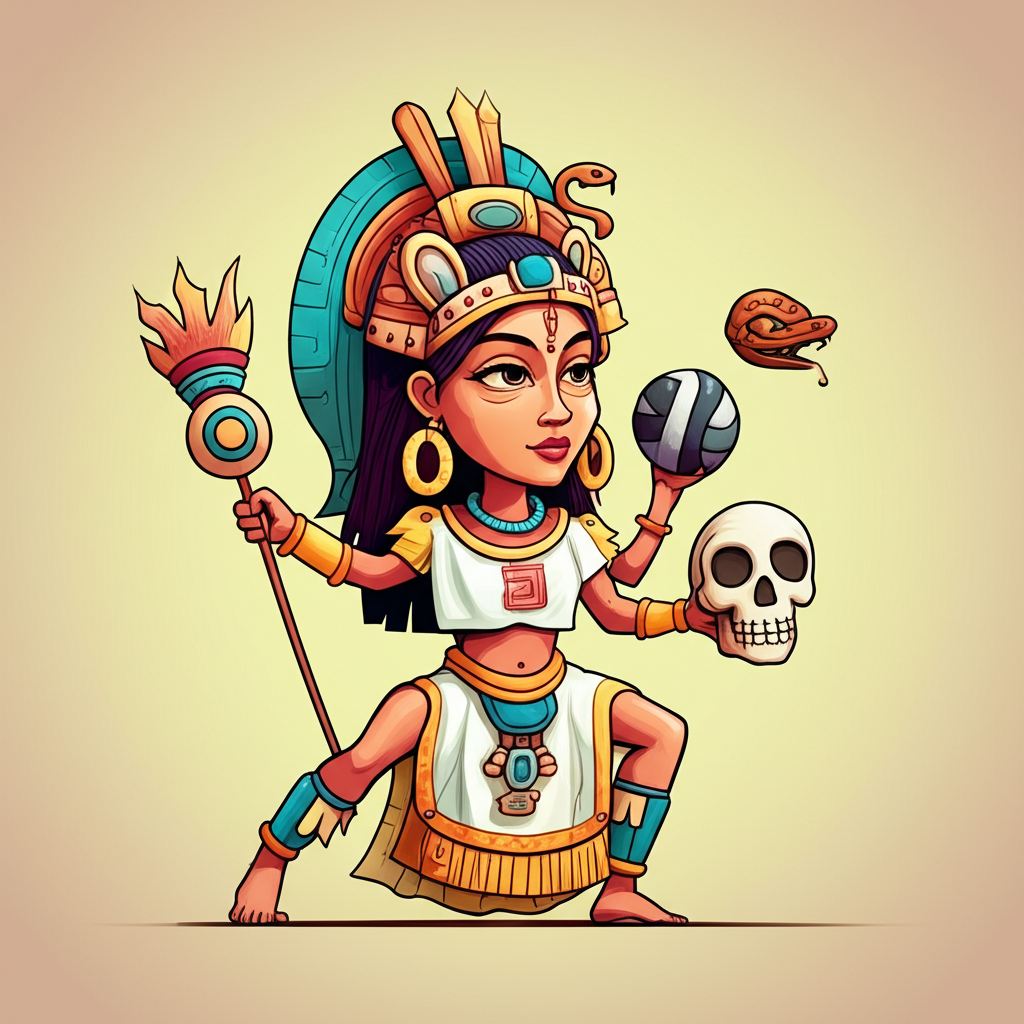
The flicker of a dying ember, the scent of woodsmoke, the murmur of hushed voices – these were the sensory anchors of domestic life in the ancient world. Within the heart of every Roman home, a unique set of invisible guardians was believed to reside, tending to the well-being and prosperity of the family. These were the Penates, a concept woven deeply into the fabric of Roman mythology and folklore. It is crucial to understand that these tales are a testament to the rich cultural tapestry and imaginative worldview of ancient peoples, offering a window into their understanding of the world, not as a factual account, but as a collection of traditional stories passed down through generations.
The genesis of the Penates myth lies in the vibrant and complex society of ancient Rome, particularly during the Republic and early Empire. This was a world where the divine was perceived as intimately intertwined with the human. The Romans, a pragmatic yet deeply religious people, sought to understand and appease the forces that governed their lives, from the grand cycles of nature to the intimate rhythms of the household. Their environment, a Mediterranean landscape of fertile plains and rugged hills, shaped their worldview. They relied on agriculture, the favor of the gods for good harvests, and the strength of their communities for survival. Life was often precarious, marked by disease, warfare, and the unpredictable whims of fortune. In this context, the concept of divine protection extended beyond public temples and grand ceremonies; it permeated the very walls of their homes. The Romans believed that the hearth, the source of warmth and sustenance, was a sacred space, and that deities specifically dedicated to the safeguarding of the home and its inhabitants were essential.
The Penates themselves are not depicted as distinct, anthropomorphic figures with elaborate backstories in the way that major gods like Jupiter or Mars might be. Instead, they are more akin to a collective presence, an ancestral spirit or a localized divine force. They were often conceived as small, often unseen, figures, sometimes represented by images or statuettes placed in a shrine (a sacrarium) within the home, typically near the hearth. Their symbolic attributes were tied directly to the concept of domesticity and sustenance. They represented the continuity of the family line, the security of the home, and the bounty of the larder. They were the silent witnesses to family life, the unseen hands that ensured the olive oil flowed, the grain stores remained full, and the household remained safe from harm. Their presence was a constant reminder of the sacredness of domestic life and the interconnectedness of family and the divine.
The narrative surrounding the Penates is less about grand heroic deeds and more about the subtle, ongoing guardianship of the household. Imagine a typical Roman dwelling, perhaps a modest villa or a more substantial domus. The hearth, a central feature, is not merely a place for cooking but the symbolic heart of the home. It is here, or in a dedicated niche nearby, that the family would honor their Penates. Each morning, before the day’s work began, the master or mistress of the house would offer a small portion of food or drink – a pinch of salt, a drop of wine, a morsel of bread – to these unseen guardians. This act was not a plea for miracles, but a gesture of respect and acknowledgment, a recognition that their well-being was intrinsically linked to the favor of these domestic deities.
The stories told about the Penates emphasized their role in times of crisis. If a family faced hardship, a dwindling food supply, or an unknown illness, they would intensify their veneration of the Penates, praying for their continued protection. Conversely, a prosperous and harmonious household was often attributed to the benevolent influence of these domestic guardians. The Penates were also intimately connected to the concept of pietas, a Roman virtue encompassing duty, devotion, and respect towards gods, family, and country. Honoring the Penates was a fundamental expression of pietas, demonstrating a family’s commitment to their lineage and their ancestral traditions. When a Roman family migrated or established a new home, they would carefully transport their Penates images, signifying that the essence of their home and its protective spirits traveled with them. This act underscored the deeply ingrained belief that the Penates were not tied to a physical structure but to the family unit itself.
The symbolism embedded within the concept of the Penates is multifaceted. At its most basic level, they represented the security and stability of the home, a vital sanctuary in a world often fraught with external threats. The hearth, their traditional domain, symbolized warmth, nourishment, and the continuity of life. The Penates also embodied the ancestral spirits of the family, connecting the present generation to their lineage and fostering a sense of belonging and identity. Their constant, albeit unseen, presence served as a moral compass, encouraging virtuous behavior within the household, as they were believed to witness and judge the actions of its inhabitants. Furthermore, the Penates represented the Romans’ understanding of localized divinity, illustrating that sacredness was not confined to grand temples but could be found within the most intimate spaces of daily life.
In the modern world, the concept of the Penates continues to resonate, though through the lens of cultural interpretation rather than literal belief. They appear in literature as echoes of ancient traditions, often evoked to imbue a setting with historical authenticity or to explore themes of home, family, and heritage. In fantasy novels or historical fiction, a character might refer to their "household gods" or "hearth spirits," drawing upon the enduring imagery of the Penates. In video games, particularly those set in ancient Rome or inspired by classical mythology, the Penates might be depicted as minor deities or spirits that players can interact with to gain boons or blessings for their virtual homesteads. Cultural studies departments also analyze the Penates as a valuable insight into Roman social structures, religious practices, and their conception of the sacred in everyday life.
It is important to reiterate that the stories of the Penates are a product of ancient Roman imagination and cultural tradition. They offer a fascinating glimpse into a bygone era and its unique way of understanding the world. As Muslims, we recognize that the true Creator and Sustainer of all existence is Allah (God) alone. Our understanding of the divine is based on the teachings of Islam, which affirms the absolute oneness of God and the unicity of His creation. Yet, even as we hold this fundamental belief, we can appreciate the rich tapestry of human storytelling and the enduring power of myths and legends to illuminate cultural heritage and the evolution of human thought. The Penates, in their quiet guardianship of the Roman hearth, serve as a powerful reminder of our shared human inclination to seek meaning, connection, and protection, and the diverse ways in which these fundamental desires have been expressed across the vast expanse of history.





